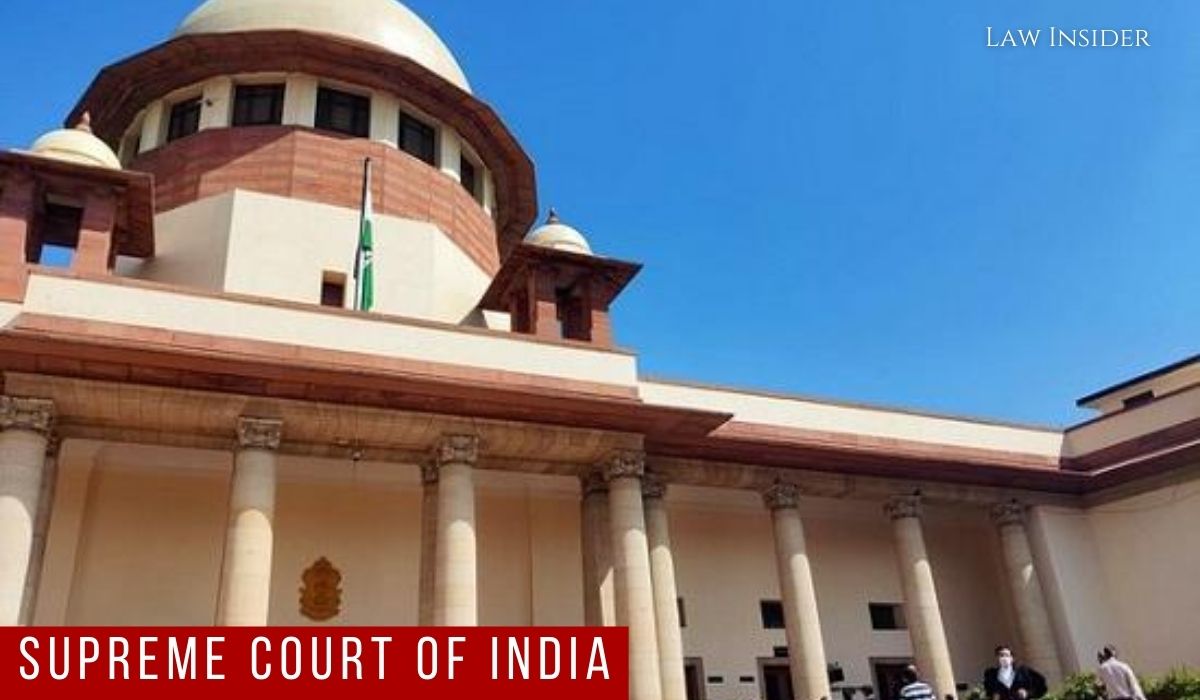Aastha Thakur
Published on: 03 November 2022 at 06:55 IST
Recently, the apex court stated that statement of victim recorded under Section 164 CrPC should not come to knowledge of any person including the accused till charge-sheet/final report is filed.
The case was heard by CJI UU Lalit and Justice Bela M. Trivedi suggested the High Courts to make appropriate modifications/amendments to the Criminal Practice/Trial Rules incorporating provisions consistent with the directions in these decisions.
According to the petitioner, the accused in the case requested and received a copy of the statement of the daughter of the petitioner that was recorded under Section 164 CrPC.
The bench said, “The documents now placed on record indicate that the accused did apply for such copy and was furnished the copy under stamp issued by the Copying Department, though the response filed by the concerned Court in answer to the queries raised by this Court, states that no such copy was given by the Court to anyone..”
“In theory what is projected in the contempt petition is quite correct that is to say despite authoritative pronouncements and directions issued by this Court the copy was applied for and furnished to the accused.”
“Further, the copy of statement under Section 164 of Cr.PC was extensively referred to in the proceedings before the Court. It is quite unfortunate that the concerned Court also did not notice the violation of the directions issued by this Court.“
However, the court declared that it will not use its jurisdiction over contempt in this case.
The petitioner’s counsel stressed that there are no provisions that go along with the directions in the aforementioned decisions in the Rules of Criminal Practice/Criminal Trial framed by the High Courts.
The Court therefore agreed with the counsel’s opinion that the Practice Rules established by various High Courts must contain and incorporate clauses in line with the legal principles stated in the aforementioned decisions.
State of Karnataka by Nonavinakere Police vs. Shivanna alias Tarkari Shivanna
In Shivanna (supra), the following directions were issued:
- Upon receipt of information relating to the commission of offence of rape, the investigating officer shall make immediate steps to take the victim to any Metropolitan/preferably Judicial Magistrate for the purpose of recording her statement under Section 164 CrPC. A copy of the statement under Section 164 CrPC should be handed over to the investigating officer immediately with a specific direction that the contents of such statement under Section 164 CrPC should not be disclosed to any person till charge-sheet/report under Section 173 CrPC is filed.
- The investigating officer shall as far as possibly take the victim to the nearest Lady Metropolitan/preferably Lady Judicial Magistrate.
- The investigating officer shall record specifically the date and the time at which he learnt about the commission of the offence of rape and the date and time at which he took the victim to the Metropolitan/preferably Lady Judicial Magistrate as aforesaid.
- If there is any delay exceeding 24 hours in taking the victim to the Magistrate, the investigating officer should record the reasons for the same in the case diary and hand over a copy of the same to the Magistrate.
- Medical examination of the victim: Section 164-A CrPC inserted by Act 25 of 2005 in CrPC imposes an obligation on the part of investigating officer to get the victim of the rape immediately medically examined. A copy of the report of such medical examination should be immediately handed over to the Magistrate who records the statement of the victim under Section 164 CrPC.
In A vs. State of Uttar Pradesh, The court ruled that until the proper instructions are issued by the court after the charge-sheet is submitted, no individual is entitled to a copy of a statement recorded under Section 164 of the Criminal Procedure Code. The right to receive copy of such statement will be available only after cognizance is taken and at the stage envisaged by Sections 207 and 208 CrPC, not before.

